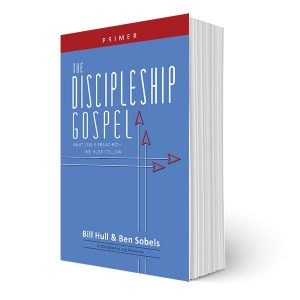THE WORD

Psalm 119:105 says, “Your word is a lamp to guide my feet, and a light for my path.” We usually read that and think of that guiding lamp as a metaphor. But I was reminded of the reality of that truth the other night. I got up in the dark and headed to the other room, only to realize that the bedroom chair was not exactly where I usually leave it! I launched out in the dark, quietly, trying not to wake my husband. Needless to say, when I wrapped my pinky toe around the rung of the chair, the ensuing sounds woke him from a sound sleep. If only I had just turned on a bit of light to guide my way. The chair is now back in its proper place, and my toe is back to normal.
Our spiritual life is much like that journey in the dark. Landmines are everywhere, waiting to trip us up. Unexpected obstacles…relationship difficulties…illness…and the list goes on and on. Add to that a very real and present enemy who is trying to make sure we are not able to carry out the mission of Christ, and we realize just how desperately we need the light of God’s Word to guide our paths in this life. But too many Christians spend too little time in the Word.
The Gospel of Luke gives us an in-depth look at how people deal with the Word.
While a large crowd was gathering and people were coming to Jesus from town after town, he told this parable: “A farmer went out to sow his seed. As he was scattering the seed, some fell along the path; it was trampled on, and the birds ate it up. Some fell on rocky ground, and when it came up, the plants withered because they had no moisture. Other seed fell among thorns, which grew up with it and choked the plants. Still other seed fell on good soil. It came up and yielded a crop, a hundred times more than was sown.” When he said this, he called out, “Whoever has ears to hear, let them hear.”
His disciples asked him what this parable meant. He said, “The knowledge of the secrets of the kingdom of God has been given to you, but to others I speak in parables, so that, “‘though seeing, they may not see; though hearing, they may not understand.’
“This is the meaning of the parable: The seed is the word of God. Those along the path are the ones who hear, and then the devil comes and takes away the word from their hearts, so that they may not believe and be saved. Those on the rocky ground are the ones who receive the word with joy when they hear it, but they have no root. They believe for a while, but in the time of testing they fall away. The seed that fell among thorns stands for those who hear, but as they go on their way they are choked by life’s worries, riches and pleasures, and they do not mature. But the seed on good soil stands for those with a noble and good heart, who hear the word, retain it, and by persevering produce a crop.
“No one lights a lamp and hides it in a clay jar or puts it under a bed. Instead, they put it on a stand, so that those who come in can see the light. For there is nothing hidden that will not be disclosed, and nothing concealed that will not be known or brought out into the open. Therefore consider carefully how you listen. Whoever has will be given more; whoever does not have, even what they think they have will be taken from them.”
As you read this passage that is familiar to many of us, which soil are you? In other words, how rich is the soil of your heart? As the many cares of the world press in on us, we are often tempted to fall back into the third soil situation. The tyranny of the urgent takes precedence over spending time in God’s Word. Work, sports, and leisure activities all encroach upon times of silence and solitude that bring us closer to God through his Word. And our light begins to dim a bit.
Darrell Bock says it well, “The difference between soil three and soil four people seems to be the condition of the heart. A healthy heart clings to God’s Word; It beats fast for him and responds to him. A damaged heart has trouble seeing him over the distraction and attraction of other things. It does take constant listening and clinging to the Word to be fruitful.”1
As Christians, we should all have a desire to be fruitful. To move the Kingdom of God forward. To see more people enter into a saving relationship with Jesus. So, how do we go about preparing the soil of our hearts to receive the Word of God and let it take root? That question has a simple answer. Time. We must create time in our busy schedules to sit in the presence of God and his Word. When we develop rhythms of study it will help us move toward the goal of knowing and experiencing God’s Word.
So, how do we actually go about preparing the soil of our hearts and creating that rhythm? Planning and intentionality. Begin with prayer. We must have the help of the Holy Spirit to be able to maintain any kind of spiritual rhythm. Our enemy knows how powerful the influence of God’s Word in our life can be, so he will try any trick and tactic to stop you from finding success in developing that rhythm. So, we enlist the help of the Holy Spirit.
The next step is to choose the best time for maximum availability. Try and choose the same time every day, as this creates a rhythm that will be sustainable. I am a morning person, so the first hour of the day works best in my rhythm of life. When I first began the journey of studying and learning from God’s Word, I had some difficulty making a firm commitment to rise an hour earlier than normal in order to spend time with God. But now, years later, I wouldn’t think of starting my day without that hour dedicated to expanding my mind and hearing from God with my marching orders for the day.
Choose a translation that is comfortable for you to read. There are many great translations available, so do some research. Most are available online, so try out some different ones before you decide to buy.
Many people wonder where to start studying God’s Word. The possibilities are endless. If you are new to the rhythm of daily study, you might want to begin with a reading plan. Numerous apps have great plans that will get you started. I try to read the Bible through most years in a different version. In addition, I like to take a deep dive into one book, reading along with a commentary.
You may be deep in your walk with Christ, and this idea of a daily rhythm may seem redundant to you. If that’s you, think about those around you who might benefit from the ideas presented above. Never assume that the people around you, or the people you lead, are settled into a rhythm of study. I was a Christian for many years and stayed at a surface level in my faith, simply because I had no intentional rhythm of study. Then I realized that, in my leadership, I could not take people where I had not been.
My questions to those I lead are, “How is your quiet time? What is God telling you in those times?” If you ask those questions, maybe even of yourself, you might realize that God desires to do a deeper work in their (or your) hearts. Learning from God’s Word is a foundational component of living as a disciple of Christ.
[1] Darrell L. Bock, The NIV Application Commentary: Luke. 1996. Grand Rapids, MI: Zondervan. P. 235
This post originally appeared at: The Word — The Bonhoeffer Project
If you have enjoyed reading this, please consider joining our email list!











